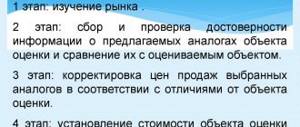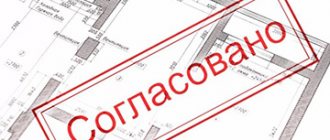Features of accounting in a housing construction cooperative
Accounting for housing cooperatives has a number of features related to the activities of this organization. Housing cooperative expenses are expenses planned for the current year .
These costs mainly consist of:
- Costs of common property and major repairs of houses.
- Current repairs and property maintenance costs.
- Funds that are actually spent on repairs of an apartment building.
Housing cooperative income is:
- Various receipts.
- Membership fees and other mandatory payments.
- Receipts for which the housing stock is repaired, for which benefits and certain types of services are provided.
- Income from business activities.
Should I hire a specialist?
In view of the fact that financial accounting in housing cooperatives is not a matter of choosing any of the available accounting policies, but of developing your own accounting methods, it is better to entrust this matter to a specialist. The development of financial accounting policies in housing cooperatives requires a separate accounting specialization. The employee must independently interpret the financial essence of the enterprise’s activities and develop a way to reflect this activity in the reporting
Important! Accounting for housing cooperatives requires the use of professional judgment; this section of accounting is considered quite complex.
Distribution of duties
The responsibilities of both the accountant and the chief accountant in the housing cooperative are approved in the job description, which is developed individually by the management of each organization. The competencies and responsibilities of employees must be reflected in the employment contract.
Chief Accountant
An example of a job description for a chief accountant in a housing cooperative:
- The accountant is guided by the Constitution of the Russian Federation and the charter of the housing cooperative, as well as decisions of superiors and general decisions.
- The employee must have appropriate education.
- An employee is appointed and dismissed by decree of the head of the board.
- Reception and delivery of cases is carried out after an audit carried out by a special commission.
- If an employee is temporarily absent, then one of the employees of the audit commission or one of the employees of the board of directors is appointed instead by order of management.
The responsibilities of the chief accountant in a housing cooperative are as follows::
- Organize financial accounting of the Cooperative and control the consumption of resources and safety of property.
- Develop accounting policies.
- Organize work on accounts and documents.
- Monitor the correct maintenance of accounting and reporting in the Cooperative.
- Keep records of property and incoming funds.
- Calculate payments for members of the enterprise.
- Monitor the correct execution of documents.
- Analyze the economic activities of the Cooperative.
- Prevent waste and waste.
- Prepare materials on thefts and shortages.
- Contribute to the accumulation of funds in the account.
- Place available funds in bank deposits.
- Ensure staff discipline.
- Develop and implement planning and accounting documentation.
- Develop balance sheets and other reporting, submit documents to special authorities.
- Receive residents of the house four times a month for 2 hours at a time established by the Board of the Cooperative in the premises of the board of housing cooperatives.
- Provide methodological assistance to the management of the Cooperative regarding financial accounting.
- Improve your qualifications.
What to do if one employee is responsible for finances?
Accounting can also be entrusted to the chief accountant in a housing cooperative. If there is only one accounting employee in a housing cooperative, then his responsibilities are identical to those of the chief accountant.
Hiring the head of housing and communal services
The head of the board of housing cooperatives is elected at a general meeting of members of the cooperative. After the election, residents must enter into a special employment contract with the new chairman. In this case, the chairman of the board acts as an employee, and all participants in the cooperative act as an employer. The head of the board must receive a certain salary from the residents of the house for his work. After the elections, it is necessary to draw up an estimate that will take into account the cost of wages.
Wages are determined using market methods. In other words, it is not the state, but the residents themselves who determine the size of wages. If necessary, oral bidding may be used to determine wages. The size of the salary is influenced by such parameters as the terms of reference of the head of the housing cooperative, the region of residence, the size of the cooperative, and so on. Typically in Moscow the salary is 20-30 thousand rubles; in St. Petersburg this figure ranges from 15 to 25 thousand rubles; in other regions they usually pay 10-20 thousand rubles.
Financial statements
Housing cooperatives are required to submit annual financial statements based on all data for the year, as well as quarterly and monthly statements. The report must be approved in accordance with the rules established by the company's constituent documents. It is important to establish what is the source of income in the enterprise.
For housing cooperatives this is:
- Membership fee.
- Share contributions.
- Subsidies from the budget.
- Utility payments from homeowners.
- Other income.
Housing cooperative expenses are as follows::
- To manage the Cooperative.
- For public utilities (water supply, sewerage).
- For heating.
- Garbage removal and area cleaning.
- TV antennas.
Housing cooperatives, like any legal entity, are required to submit financial statements. The balance sheet for housing cooperatives differs in that it contains data on contributions from homeowners: shares, entrance fees, membership fees. The financial report of a housing cooperative is a document that shows the turnover of funds received from future apartment owners from the moment of joining the housing cooperative.
Important! After the owners have paid all the fees, the housing cooperative becomes an HOA.
Accounting for a cooperative provides details for each shareholder, all data is summarized in the final report.
Responsibilities of the chairman of the housing cooperative
The Chairman can be re-elected for the next 2 years. The Chairman acts and signs payment documents on behalf of the housing cooperative and makes transactions that, in accordance with current legislation and the Charter of the partnership, are first subject to mandatory approval by the Board or the General Meeting.
The executive body of the housing cooperative acts on the basis of the Regulations on the executive body of the housing cooperative, approved by the General Meeting of members of the housing cooperative.
The regulations are being developed in accordance with the current legislation of the Russian Federation on the basis of the Charter of the housing cooperative. The Regulations are an internal regulatory document of the housing cooperative, mandatory for execution by all members of the housing cooperative and management bodies of the housing cooperative.
Chairman of the board of housing cooperatives: responsibility under the law and to shareholders
Since the chairman of a housing construction cooperative is the highest official of such a legal entity, there is no point in complaining to the board of the cooperative about him (this is due to the peculiarities of the legal status of the chairman).
It is for this reason that in case of dissatisfaction with the quality of the chairman’s work or in case of suspicion of violations of current legislation by this official, complaints should be filed with certain government bodies, which include:
- local government bodies responsible for compliance with current legislation in the field of housing and communal services;
- government bodies competent in terms of compliance with regulatory issues in the housing and communal services sector;
- judicial authorities in accordance with the territorial jurisdiction of the location of the chairman as a defendant in the claims filed;
- prosecutorial authorities in terms of monitoring the implementation of current housing legislation;
- law enforcement agencies (police, investigative committee) in case of confirmed facts of violation of criminal law by the chairman of the housing cooperative in the performance of his duties;
- If there are violations of labor legislation on the part of the chairman in relation to the service personnel hired by him on behalf of the housing cooperative, an application will be required to the labor inspectorate of the region in which the cooperative is located.
Unlike the manager, who controls the performance of various works by specially hired employees of the housing cooperative, the chairman is primarily engaged in representing the interests of the cooperative itself and its participants, including before government bodies.
Good day! I am currently trying to hold the Homeowners Association accountable for harm caused to the health of a person who fell into a trench made by a contractor for planting seedlings in the local area.
Let's assume that the residents of the building assume that the funds are being distributed incorrectly, and the chairman of the housing cooperative does not provide documents on expenses.
The general meeting of members of the housing cooperative may decide to transfer part of the rights belonging to it to the competence of the executive body, with the exception of issues referred by law and the Charter of the housing cooperative to the exclusive competence of the General Meeting of members of the housing cooperative.
The Chairman acts and signs payment documents on behalf of the housing cooperative and makes transactions that, in accordance with current legislation and the Charter of the partnership, are first subject to mandatory approval by the Board or the General Meeting.
A member of the GSK died 5 years ago and no one pays for two garages, the extract from the Unified State Register shows the deceased, no one has claimed the right to inheritance.
Possible problems and their solutions
The audit commission of the housing cooperative elects the chairman of the audit commission from among its members.
The chairman of the board is a representative of the housing cooperative without a power of attorney in all executive, representative and judicial authorities. The executive body of the housing construction cooperative “[fill in as appropriate],” hereinafter referred to as the housing cooperative, manages the current activities of the housing cooperative and organizes the implementation of decisions of the General Meeting of members of the housing cooperative. 1.2.
The Chairman has the right to simultaneously hold the position of House Manager with an appropriate salary approved by the General Meeting.
Job Description of the Chairman of the Board of the Homeowners Association
Removal occurs upon the recommendation of the Audit Commission or members of the initiative group (10% of the number of members of the housing cooperative) by a qualified majority (two-thirds of the Board).
Organize the activities of the board in accordance with current legislation, the requirements of the Charter of the Housing Committee and the decisions of the general meeting and the board.
Life itself suggested a new topic for the article. In the evening, the chairman of the housing cooperative and an active member of the board literally caught me at the entrance. They were bombarded with questions: what is the difference between housing cooperatives and homeowners' associations, how to collect debt from defaulters, what measures can be applied to them independently?
Provide residents of the house with the recalculation of payments in the established manner in the event of poor quality or lack of utility services.
Life itself suggested a new topic for the article. In the evening, the chairman of the housing cooperative and an active member of the board literally caught me at the entrance. They were bombarded with questions: what is the difference between housing cooperatives and homeowners' associations, how to collect debt from defaulters, what measures can be applied to them independently?
Housing cooperative. According to the Charter, the chairman is obliged to consider applications and, within the limits of his powers, issue the requested documents. The Housing Code and the Charter provide for the cooperative to provide open access to all documents.
Determining the amount of wages that will be paid to the chairman of the housing cooperative falls entirely on the shoulders of the members of such a cooperative.
That is, we can talk about a commercial mechanism for the formation of this type of payment to the specified official.
The chairman's salary itself consists of several factors and can vary greatly between different cooperatives. Determining factors include:
- the range of powers vested in the chairman, as well as the breadth of his responsibilities;
- the size of the cooperative in quantitative terms of the residential and non-residential premises available in it;
- region where the cooperative is located;
- the presence of an employment contract with the chairman (if there is an agreement, then the position cannot be nominal and is necessarily endowed with a fairly wide range of rights and responsibilities, as a result of which the appropriate salary must be offered);
- other factors that were determined within the framework of the constituent meeting (for example, the possibility of indexing the salary and available allowances in accordance with changes in market conditions).
Source: https://russkiles.ru/finansovoe-pravo/5248-obyazannosti-predsedatelya-zhsk.html
List of documents that a housing construction cooperative must submit
Standard package
Based on paragraph 1 of Art. 6 of the Law of December 6, 2011 No. 402-FZ of the Criminal Code of Housing and Communal Services, like any other legal entity, is required to keep accounting records and submit reports. The financial statements of the management company include :
- Balance sheet.
- Income statement.
- Explanations for the Report and Balance Sheet in text or tabular form.
- Statement of changes in equity.
- Cash flow statement.
Such a list is established by part 1 of article 14 of the Law of December 6, 2011 No. 402-FZ, paragraphs 2 and 4 of the order of the Ministry of Finance of Russia of July 2, 2010 No. 66n. If the management company is a small enterprise, then it submits only the Balance Sheet. (clause 85 of the Regulations approved by order of the Ministry of Finance of Russia dated July 29, 1998 No. 34n). If the management company uses a simplified accounting procedure (clause 2, part 4, article 6 of Law No. 402-FZ of December 6, 2011), then financial statements must be submitted using simplified forms.
Established for this type of organization
Any non-profit organization is obliged to carry out financial accounting and submit reports annually, in accordance with the law “On Accounting.” When using the simplified tax system, housing cooperatives are not exempt from the obligation to submit reports to the tax authority and Rosstat.
List of documents:
- Balance sheet.
- Report on the intended use of funds.
- Statement of financial results (in the case of business activities).
Main responsibilities
The key responsibilities of the chairman of a housing construction cooperative are set out in the provisions of Article 119 of the Housing Code of the Russian Federation. Based on its provisions, it can be concluded that the chairman has the following responsibilities:
- to ensure high-quality execution of all decisions made by the board of a particular cooperative;
- to carry out actions in the interests of the entire cooperative as a legal entity and its participants , including in terms of fulfilling their obligations to protect the interests of the participants of the established cooperative.
Based on the current law enforcement practice, we can conclude that the chairman of the housing cooperative is also given a number of responsibilities, namely:
- knowledge of existing laws and other regulations operating not only at the level of the Russian Federation, but also at the level of constituent entities, as well as within the municipality in which a particular cooperative is located;
- conscientious organization of the activities of the board of the cooperative , as well as adjustment of such actions in strict accordance with the norms of current legislation;
- regulation of issues related to the organization of repairs (major and current) on the property entrusted to him, as well as regarding the provision of all types of utilities to all owners of residential and non-residential premises;
- monitoring the services provided to members of one’s cooperative for compliance with the quality of the results of their provision , and if the results are unsatisfactory, protecting the interests of members of the cooperative by participating in the recount;
- ensuring the proper quality of operation of all equipment that is in the house and belongs to common property;
- storage and issuance of documents that confirm ownership rights to the existing property of members of the cooperative, and also characterize such property from various aspects;
- control over accounting and banking activities , if they may in any way affect the interests of the cooperative participants;
- checking the correctness of the calculations made between the cooperative members and any resource supply organizations;
- participation in events to improve all common property and local areas;
- control of measures regarding unauthorized redevelopment of common areas , as well as residential and non-residential premises owned by members of the cooperative;
- drawing up a work plan for reporting periods and monitoring the implementation of activities in such plans;
- conducting board meetings, participating in the work of the board of the cooperative and during regular and extraordinary meetings of such boards.
A sample employment contract with the chairman of a housing construction cooperative can be viewed here.
This list of responsibilities is not exhaustive, since each cooperative fixes such a list independently in the adopted Charter.
What are the wiring?
Let's look at the basic accounting entries in a housing construction cooperative. The main account that appears in the accounting department of the housing cooperative is account number 86 , Targeted financing.
This account includes:
- Membership shares.
- Contributions from members of the cooperative for the maintenance of property.
- Payments for utilities.
- Funds coming from the budget.
- Contributions from investors and sponsorships.
Income from business activities is reflected using account number 90 - Sales, and other income and expenses - account 91 - Other income and expenses. Payments to customers are made using account number 62 – Settlements with customers and clients. Targeted receipts are posted to account 86 - Targeted financing and account 76 - Settlements with debtors and creditors. The target budget is spent on accounts 20 or 26 - general business expenses.
Chairman of the board of housing cooperatives: responsibility under the law and to shareholders
In a housing construction cooperative, the shareholders themselves manage the apartment building.
This reduces the cost of construction, allows you to control costs and monitor the quality of services provided. The chairman of the board of housing cooperatives supervises the company's employees. How to remove him from office, how the election takes place and the terms of his powers - we’ll talk about this today.
He is elected to office by the members of the board. There is another way to choose - to prescribe in the charter the procedure for election by the general meeting.
The term of office and the procedure for election are established in the charter.
Only an individual who cooperative can head the board of a cooperative . At the same time, he may not be the owner or even live in the apartment building.
The age limit is from 16 years. The law imposes this requirement on all participants.
Article 116.1 of the Housing Code contains an exhaustive list of circumstances under which the path to becoming members of the board and audit commission is closed:
- the criminal record has not been expunged or expunged (with the exception of unintentional crimes);
- the period of disqualification has not expired;
- if the actions of this person in leadership positions in the housing and communal services sector led to bankruptcy. The ban is valid for 3 years.
In addition, in order to avoid a conflict of interest, members of the audit commission cannot be elected to the board and to the position of chairman.
Read about the powers of other bodies of the housing cooperative in separate articles:
Rights and obligations
The terms of reference of the chairman of the housing cooperative are determined by the charter and Article 119 of the Housing Code of the Russian Federation. There are two types of tasks:
- internal corporate role – interaction of the chairman and board with shareholders,
- enterprise management - apartment building management and construction.
Article 119. Chairman of the board of a housing cooperative
- The chairman of the board of a housing cooperative is elected by the board of the housing cooperative from among its members for a period determined by the charter of the housing cooperative.
- Chairman of the board of a housing cooperative:
- ensures the implementation of decisions of the board of the cooperative;
- acts on behalf of the cooperative without a power of attorney, including representing its interests and making transactions;
- exercises other powers not assigned by this Code or the charter of the cooperative to the competence of the general meeting of members of the cooperative (conference) or the board of the cooperative.
- The chairman of the board of a housing cooperative, when exercising rights and performing duties, must act in the interests of the cooperative in good faith and reasonably.
The chairman deals with minor issues that can be decided without the participation of the board and the general meeting. This is called exclusive competence.
In fact, the chairman is the head of the collegial governing body. The Code and the law on housing and communal services do not allocate separate powers of the chairman. We can say that he is the nominal head of the board. According to a piece of paper. That is, all issues are accepted collegiately - by members of the board.
To avoid disputes about competence, write down in the charter of the housing cooperative everything that the chairman is responsible for.
Typically the head of the board:
- conducts the general meeting and board meetings, signs minutes,
- issues certificates of payment of shares,
- signs responses to statements from members of the cooperative and complaints from homeowners,
- presents the results of the work in the form of a report at the annual conference.
How can the chairman of a housing cooperative harm the heir?
The collegial body makes a decision on the entry of a new member into the cooperative. It is then approved by the general meeting. Even the heir receives his share with the permission of the general meeting.
The chairman, as a member of management, may be against it and delay the process, but he is not the only one who decides the issue.
Head of the executive body:
- carries out decisions made by the general meeting and the board on the maintenance and repair of the building, housing and utility services, control of contractors;
- signs documents on behalf of the organization. The chairman is approached for powers of attorney, signing employment contracts, internal documents;
- represents the interests of a legal entity: in a bank, court, tax office and before contractors. For this he does not need a power of attorney;
- The manager is responsible for storing title documents and business contracts, and supervises the accountant.
Only after approval by the board or general meeting of members of the cooperative can the chairman sign any financial document.
Salary
Many shareholders may think that the chairman’s job is not a big deal, since they see him once a year at the reporting meeting.
In fact, it turns out that a good manager is busy all day long: monitoring the progress of construction, visiting countless authorities. This is hard work that must be paid.
The law does not prohibit signing an employment contract with the chairman, so you have two options:
- employment contract,
- one-time remuneration under a civil contract.
The determination of the payment amount is a matter for the members of the cooperative themselves.
Judicial practice is ambiguous. In some cases, the court recognizes the contract with the chairman of the board of housing cooperatives as an employment contract, since payments are periodic in nature. In this case, it is necessary to draw up an employment contract and job description.
In others, they refuse to pay wages, citing the fact that the relationship stems from corporate ones. In addition, taxes and fees related to wages cannot be paid from a fund formed from share contributions. In this case, a civil contract may be concluded.
Responsibility
The head of the board must act reasonably, in good faith and in the interests of shareholders. It is interesting that the law does not impose such requirements on the manager of a homeowners’ association.
These concepts are evaluative in nature. Their meaning is not disclosed in the text of the law.
The reasonableness of a manager’s actions means that in a particular situation he must choose the most effective solution: to obtain the maximum result with a minimum of costs.
Risky transactions and careless decision-making can lead to losses, the responsibility for which falls on the shoulders of the shareholders.
To act in good faith means to honestly fulfill one’s obligations and to refuse to fulfill them if it becomes known that they are illegal or violate the interests of the cooperative.
The chairman of the board of a housing cooperative is expected to treat the interests of the cooperative as his own, because he himself is a shareholder and has a financial interest in the favorable outcome of the construction.
In the event of a dispute, the judge, when assessing his actions (from the point of view of morality and economic feasibility), is guided by business customs, the analogy of the law, as well as internal conviction.
The charter may provide for specific liability of the chairman for causing losses to the cooperative. In this case, according to Art. 15 of the Civil Code of the Russian Federation, the right to demand their compensation in full belongs to the cooperative itself.
How to find authority for the chairman of the housing cooperative and where to complain?
You can complain to the supervisory authority about problems with the construction or housing and communal services of an apartment building. As a last resort, go to the prosecutor's office.
You can always go to court and overturn a wrong decision. Therefore, we do not recommend contacting government agencies. Only in case of fraud. Otherwise, fines will fall on the budget of the entire cooperative and you will feel them yourself.
Read more about the shareholder’s difficult share here.
Change of chairman
The chairman of the board of housing cooperatives has the right to write a statement of resignation.
Offset:
- choose a new one at a board meeting,
- change the composition of this collegial body.
After new elections, changes are made to the constituent documents, which must be submitted to the Federal Tax Service for registration.
If the board cannot resolve the issue of electing a chairman because all its members refused to take the position, then a new composition is elected by the general meeting of members of the housing cooperative.
The procedure for forced change of the chairman of the housing cooperative depends on the procedure for registering relations with him. It is easier to break off a relationship early or without the person’s consent under a civil law contract than under an employment contract.
Remember
that the chairman of the board of housing cooperatives...
- He only manages a collegial body; all important decisions are made jointly.
- Has the right to sign any documents and acts on behalf of a legal entity without a power of attorney.
- He may receive remuneration/salary, but it is more convenient to draw up not an employment contract, but a regular contract: there will be no payments to the pension fund and it is easier to break off the relationship.
- Bears financial liability for losses only when this is stipulated in the charter or an agreement with it.
Source: https://kapremont.expert/kvartira/zhsk/organy/predsedatel-pravleniya.html
Estimate - what is it?
In accordance with Part 3 of Art. 148 of the Housing Code of the Russian Federation, the board of housing cooperatives must annually submit an estimate of income and expenses . This document is approved by a meeting of members of the Cooperative and serves as the basis for financing for the next year. The main point is costs. This document discusses the feasibility of certain costs for the activities of housing cooperatives.
If the Cooperative does not conduct business and does not have any income other than membership fees, then drawing up an estimate is pointless. In this case, income will be determined by expenses.
Reference! If there is a commercial activity of housing cooperatives, an estimate is drawn up, because in this case, income exceeds expenses, and it is possible to reduce membership fees. When spending funds, the accountant is guided by the estimate.
The document approves standard and actual expenses and identifies deviations of actual expenses from standard ones. The estimate is an element of systemic financial accounting and a document characterizing the state of the economic activity of the enterprise. The estimate must correspond to the level of wages in the region for housing cooperative workers, staffing levels, prices for work and property maintenance, and not depend on the amount of income of the enterprise.
Read useful articles about housing cooperatives and membership in the organization. Find out how to fill out applications and certificates at the housing cooperative, as well as how housing cooperatives differ from other forms of management.
Rights and obligations
It is important to pay attention to the rights and responsibilities of the manager, which are prescribed not only by the charter, but also by such an important document as the regulation on the chairman of the housing cooperative. So, first let's talk about the responsibilities of the chairman of the housing cooperative, because... there are more of them than rights.
- First of all, the head of the housing cooperative is obliged to master the legislative framework and skillfully use the laws in his activities.
- The chairman must organize the activities of the organization in accordance with the law and the charter.
- The chairman performs the functions of maintaining and repairing the building.
- Also, the head of the housing cooperative controls how construction work is carried out.
- This person provides residents with recalculation of payments if such a situation was necessary.
- Monitors the sanitary condition of the building.
- Implements measures to ensure smooth operation.
- Introduces residents and occupants of the building to reporting and settlement documents.
- Represents the interests of its management organization in other bodies, such as the court and or administration.
- Controls the activities of the accounting department and manages the activities carried out.
- Checks residents' bills.
- Authorized to sign financial documents.
- Monitors financial reporting.
- Takes measures in connection with the presence of unauthorized actions from residents or employees of housing cooperatives.
- Carries out control that ensures the satisfactory condition of the house structures.
- Supervise home improvement work.
- Receives residents when circumstances require it.
- Monitors the progress of current or major repairs.
- Checks reports on the purchase of materials.
- Sends housing cooperative employees for retraining to improve their skills and the level of services provided.
- Reports on the completed quarter on the work completed.
As you can see, this person has a lot of responsibilities. Since he is entrusted with a lot of responsibility, the chairman of the housing cooperative can be said to be irreplaceable.
However, the chairman of the housing cooperative also has rights and residents must also take them into account. Let's look at them.
- The chairman has the legal right to enter into contracts on behalf of this organization with resource supply organizations that provide the house.
- Also, the head of the housing cooperative has the right to enter into an agreement, which boils down to the transfer of management rights, as well as ownership and shared construction with housing owners.
- The chairman has the right to monitor how competently and correctly the residents use their premises, namely, whether this corresponds to the purposes of use.
- If the head of the housing cooperative believes that there is a threat to create an emergency or dangerous situation, he has the right to stop the tenant’s use of the real estate until the circumstances are clarified.
- The Chairman has the casting vote if there is a vote for or against any activity.
- The chairman has the right to independently select personnel to carry out construction work.
- The chairman has the right to give instructions to his employees in accordance with the procedure established by law, as well as to demand that his instructions be carried out.
The range of rights is somewhat narrower than duties, but this is required by job descriptions and the charter of the organization.
How is he chosen and by whom?
Let's talk about who chooses the head of the housing cooperative, because this is very important for those who intend to join the housing cooperative in the near future. This person is chosen by the owners of real estate in an apartment building, that is, members of the housing cooperative (read about how to become a member of the housing cooperative and other features of the cooperative’s work here).
IMPORTANT! The appointment of the head of the housing cooperative by administrative bodies is impossible, since this is entirely the choice of the residents. At the same time, you must remember that this person is elected only from among the members of the board.






